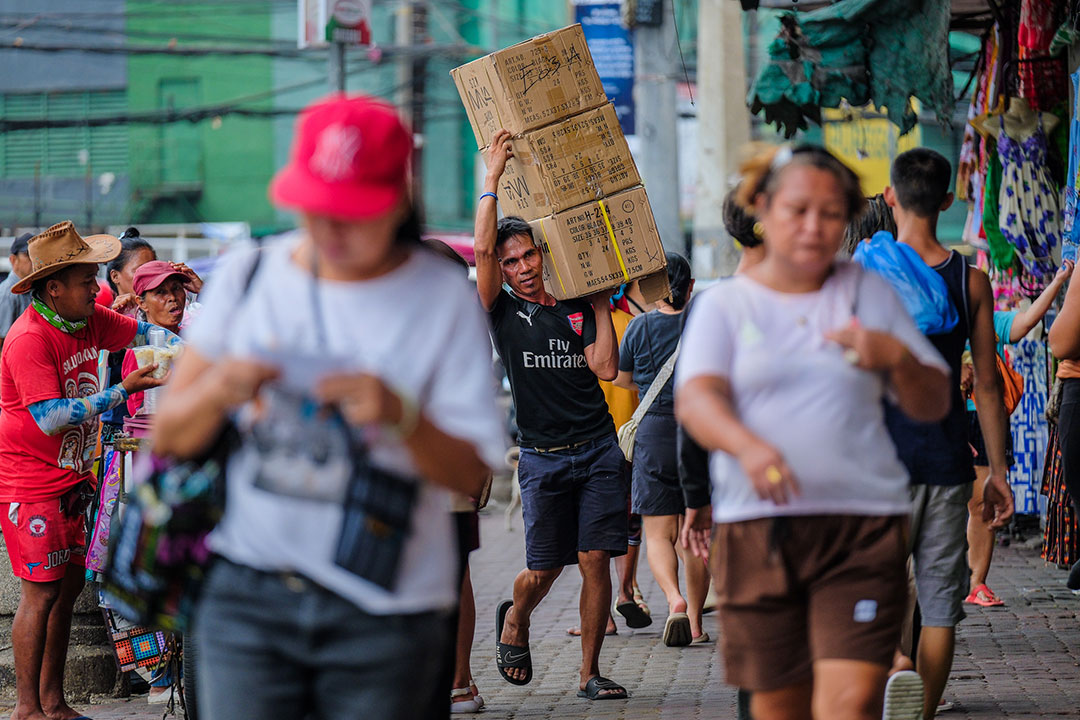
Human Side Of Economics
By Bernardo M. Villegas

(Part 1)
The frequent reference of Pope Leo XIV to the first social encyclical written by Pope Leo XIII — Rerum Novarum — has prompted economists, social scientists, philosophers, and theologians to review the teachings contained in the encyclical. This document, issued in 1891 at the height of the First Industrial Revolution, contains very valuable guidelines on a very pressing issue for which President Ferdinand Marcos, Jr. was severely criticized by workers for not mentioning in his last State of the Nation Address (SONA). I am referring to the issue of setting minimum wages for workers, such as the move of some members of the House of Representatives to increase the prevailing minimum wages for Filipino workers by P200 monthly. Just last July, the Trade Union Congress of the Philippines called on Congress to “swiftly” approve the P200 legislated wage hike after a new survey revealed that almost half of Filipino families consider themselves poor.
Indeed, the Philippines is notorious for having the highest poverty incidence among its peers in the ASEAN. Its poverty rate of 16% compares very poorly with those of Malaysia at 0.5%, Vietnam at 3%, and Thailand at 2%. Data show, however, that close to 70% of those falling below the poverty line are in the rural areas and are non-wage workers, like small farmers, sustenance fisherfolk, and marginal workers in the countryside. The most effective means of reducing poverty then is to help these marginalized farmers and fisherfolk improve their incomes by providing them with farm-to-market roads, irrigation systems, post-harvest facilities, agricultural extension services, and access to credit.
One can explain President Marcos Jr.’s silence on the minimum wage issue in his SONA by referring to an announcement made by Palace Press Officer Clarissa A. Castro in a news briefing that reacted to the filing of the P200 minimum wage hike in the House of Representatives (the Senate had approved a P100 increase). The crux of the President’s hesitation to support the wage hike can be found in these words: “As most small business owners cannot afford it, more workers will suffer because they may lose their jobs.”
To complicate matters, the introduction of such technologies of the digital age like artificial intelligence and robotics are increasingly replacing workers. The shift to these technologies may actually be hastened if wages are increased. Our leaders are caught between the devil and the deep blue sea.
To understand how to resolve this dilemma, I suggest we review the doctrinal foundation of the concept of the minimum wage for workers. The Social Doctrine of the Church — inaugurated by Rerum Novarum in 1891 — offers a moral and ethical framework for understanding and addressing economic issues, including minimum wages. While the Church does not set specific wage amounts, it emphasizes principles that should guide wage policies to uphold human dignity, justice (especially what is called distributive justice) and the common good. Work — whether done in the formal wage sector or the informal sector — must respect the dignity of the worker. A just wage is necessary for workers to live dignified lives and support their families. Remuneration is the most important means for achieving justice in work relationships. Workers have a right to a just wage, which must be sufficient to support themselves and their respective families.
And what is a just wage according to Catholic social doctrine? It is a wage sufficient to support the worker and his/her family in a decent way. It goes beyond mere survival — it includes access to more than food but also health, education, housing, and participation in society. Rerum Novarum states: “To misuse men as though they were things in pursuit of gain… is against human dignity.” St. John Paul II in Laborem exercens (1981) wrote: “A just wage is the concrete means of verifying the justice of the whole socioeconomic system.” When push comes to shove, Catholic social doctrine makes it very clear that the person (the worker) must always have priority over profits or capital. Economic systems are meant to serve people, not the other way around. Work is for man, not man for work.
Following the principles of solidarity and the common good, wages must consider the need of the community and promote social cohesion. Low wages that lead to poverty and inequality are harmful to the social fabric. On the other hand, the Church respects the free market but it acknowledges the role of the State in regulating wages to ensure distributive justice. Governments may set minimum wage laws to prevent exploitation.
One hundred years after Rerum Novarum, St. John Paul II wrote in Centessimus Annus that the State has the duty to intervene to ensure a minimum wage and prevent exploitation. The Catholic Church generally supports minimum wage legislation if it protects workers from unjust pay (as happened in the First Industrial Revolution); ensures that the workers can meet their basic needs; and promotes fairness and human dignity.
However, wage laws must be crafted responsibly, balancing economic sustainability and social justice. Especially in labor-intensive industries, unreasonably high wages militate against sustainability, forcing factories to close because of continuing losses. This is especially important to consider in industries that have to compete with their global counterparts. For example, one of the reasons why the Philippines is unable to attract the numerous export-oriented industries like semiconductor components, footwear, garments, and car parts in competition with Vietnam is the significantly lower wages prevailing in Vietnam compared to the Philippines. Vietnam has almost monopolized the transfer of these industries from China to the ASEAN over the last decade or so. In fact, Intel, which already had factory operations in the Philippines, decided to relocate its factory to Vietnam. Although the high costs of electricity explained part of this transfer, our higher labor costs also played a part in this relocation decision.
The following list compares the daily minimum wages in the major ASEAN economies: the Philippines, $11.5; Thailand, $9.7 to $11.5; Vietnam, $8.5; Malaysia, $17.2; and Indonesia, $9.26. The Philippines is competing with Vietnam and Indonesia in attracting labor-intensive industries. Thailand and Malaysia are already suffering from the rapid ageing of their populations.
A quick ChatGPT search reveals the following more detailed comparative figures for minimum wages in the Philippines compared to Vietnam. As of 2025, minimum wages in Metro Manila range from P608 to P645 per day. Monthly this roughly equals $304. National minimum wages vary by region and sector due to regional wage boards. In Vietnam, regional monthly minimum wages (as of July 2024) range from VND 3,500,000 to 4,960,000, which is approximately $137 to $196. Another source estimates the Philippines’ hourly minimum wage at $1.64 to be about double that of Vietnam at $0.76.
Another interesting comparison concerns average salaries in Metro Manila compared to those of Ho Chi Minh City and Hanoi. It is approximately $531 in Manila while it is $502.90 and $441.17 in Ho Chi Minh and Hanoi, respectively. Cost of living platforms show that in the Philippines the overall after-tax monthly salary is $382 compared to $434 in Vietnam. These figures suggest that, despite lower legal minimum wages in Vietnam, their workers are on the average paid higher salaries, which suggest higher labor productivity. This brings up another important factor that has to be taken into account in minimum legislation: labor productivity.
Finally, another important difference between the living costs in the two countries is that in the Philippines, even essential items like food, consume a larger portion of income. This means that more important than constantly increasing wages are efforts of both the Government and the private sector to improve food security by increasing the productivity of the agribusiness sector.
(To be continued.)
Bernardo M. Villegas has a Ph.D. in Economics from Harvard, is professor emeritus at the University of Asia and the Pacific, and a visiting professor at the IESE Business School in Barcelona, Spain. He was a member of the 1986 Constitutional Commission.